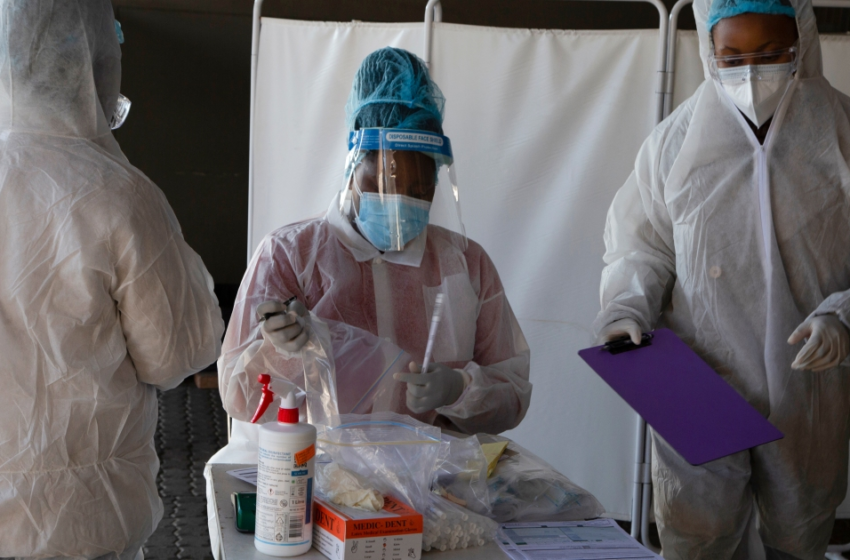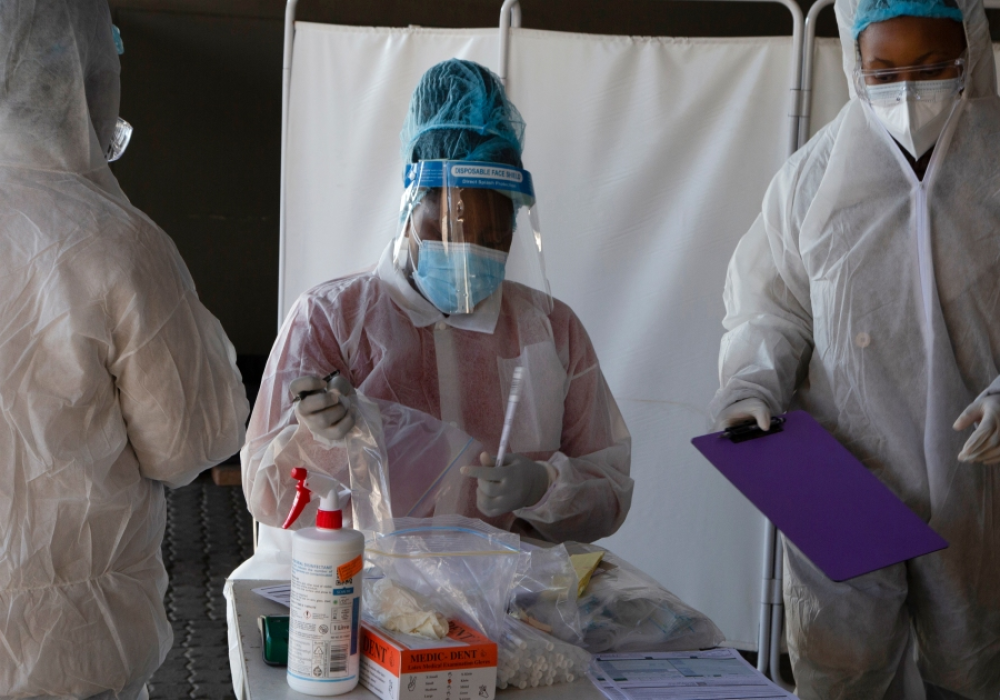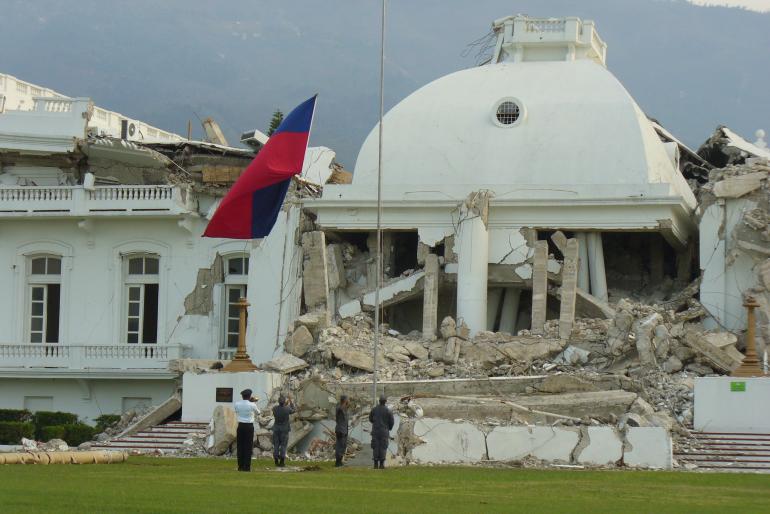South African scientists have detected a new COVID-19 variant in small numbers and are working to understand its potential implications.
The variant – called B.1.1.529 – has a “very unusual constellation” of mutations, which are concerning because they could help it evade the body’s immune response and make it more transmissible, scientists told reporters at a news conference on Thursday.
The National Institute for Communicable Diseases (NICD) said 22 positive cases of the new variant have been recorded in the country following genomic sequencing.
“Unfortunately we have detected a new variant which is a reason for concern in South Africa,” virologist Tulio de Oliveira told a news conference.
The variant “has a very high number of mutations”, he said. “It’s unfortunately causing a resurgence of infections,” he added.
It has also been detected in Botswana and Hong Kong among travellers from South Africa, he said.
Health Minister Joe Phaahla said the variant was of “serious concern” and behind an “exponential” increase in reported cases, making it “a major threat”.
Daily infections jumped to more than 1,200 on Wednesday, up from about 100 earlier this month.
Before the detection of the new variant, authorities had predicted a fourth wave to hit South Africa starting around the middle of December, buoyed by travel ahead of the festive season.
The NICD said in a statement Thursday that detected cases and the percentage testing positive are “increasing quickly” in three of the country’s provinces including Gauteng, which includes Johannesburg and Pretoria.
A cluster outbreak was recently identified, concentrated at a higher education institute in the capital Pretoria, the NICD said.
“Although the data are limited, our experts are working overtime with all the established surveillance systems to understand the new variant and what the potential implications could be,” it said.
Since the beginning of the pandemic, South Africa has recorded about 2.95 million cases of COVID-19, of which 89,657 have been fatal.
Dr Lessells adds that the data suggest a sustained increase in #COVID19 incidence across Gauteng, which is possibly fueled by cluster outbreaks. Work needs to be done to understand the significance of the #NewVariant. Vaccines remain critical. #B11529 pic.twitter.com/4zlderzifQ
— NICD (@nicd_sa) November 25, 2021
Ten mutations
Scientists said the new B.1.1.529 variant has at least 10 mutations, compared with two for Delta or three for Beta.
“What gives us some concerns (is) that this variant might have not just have enhanced transmissibility, so spread more efficiently, but might also be able to get around parts of the immune system and the protection we have in our immune system,” said researcher Richard Lessells.
So far the variant has been seen spreading especially among young people.
But the coming days and weeks will be key to determining the severity of the variant, Lessells said.
Professor Helen Rees, of the WHO’s African Regional Immunization Technical Advisory Group, urged people not to panic.
“[Currently] we are trying to identify how widely spread this is. There will be a lot of work looking at: Is it more transmissible? Is it associated with any more severity of disease? Does it render the vaccines less effective?” Rees told Al Jazeera.
“In the meantime, our big request to the world, in terms of vaccinating the African region, is please get the vaccines out into the region because as we know variants don’t stay in one country,” she added.
South Africa has requested an urgent sitting of a World Health Organization (WHO) working group on virus evolution on Friday to discuss the new variant.
Health Minister Phaahla said it was too early to say whether the government would impose tougher restrictions in response to the variant.
South Africa was the first country to detect the Beta variant last year.
Beta is one of only four labelled “of concern” by the WHO because there is evidence that it is more contagious and vaccines work less well against it.













